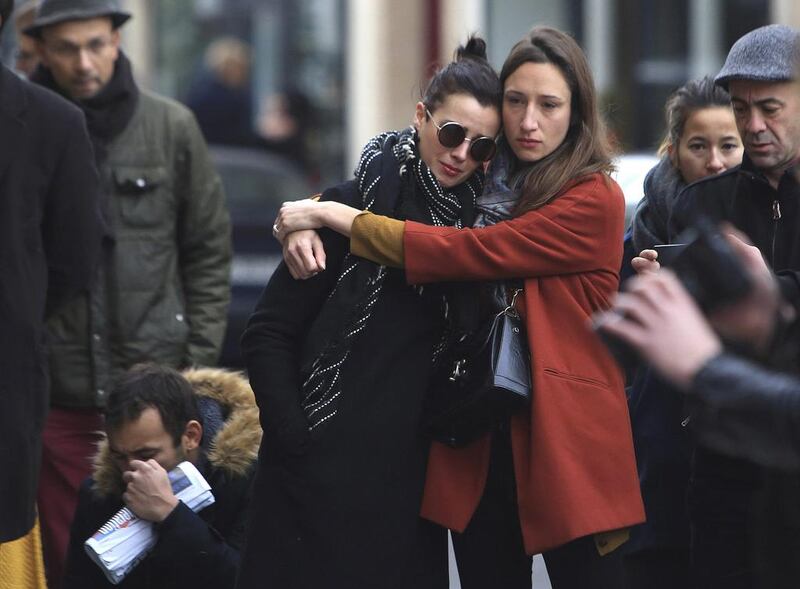Over the past five years in Syria, the Obama administration seems to have perfected the art of laying out the moral and practical argument against a decision it would later take.
In 2013, for example, Barack Obama said that the US would be setting a dangerous precedent if it did not respond to the chemical attack in a Damascus suburb that killed nearly 1,500 civilians, including 426 children. That precedent was already set as a botched process to destroy all the regime’s chemical arsenal or deter it from reusing it failed.
Also, US secretary of state John Kerry has repeatedly argued that Bashar Al Assad was a magnet for terrorists – a point that the Syrian president vigorously protested against at the weekend, arguing that it is the West and “especially France” that is to blame for Friday’s attacks in Paris. Mr Kerry has also stated that Mr Al Assad’s removal is vital for any hope for peace in the country.
That, too, has seemingly become a secondary issue in the effort to combat terrorism. Backers of both the opposition and the regime, along with representatives of the EU, the Arab League and the UN, agreed to support a ceasefire between the belligerent parties and on fighting terrorism. There was no mention of Mr Al Assad.
While western officials hailed the Vienna talks as a breakthrough, the statement issued by the participants is one of the most detached statements since the conflict started. Indeed, it is a regressive process that may make matters worse.
The participants agreed to support a ceasefire as soon as the parties begin initial steps towards a transition. It is unclear how and why such a ceasefire will work now when previous attempts failed.
In fact, previous attempts stood a better chance, since they stipulated that a ceasefire would precede negotiations about the fate of Mr Al Assad, rather than one that would indicate the opposition had accepted a process that would bypass him. In other words, more rebel factions are likely to reject this offer since it implies that the ceasefire follows the opposition’s acceptance of a role for Mr Al Assad.
More importantly, an internationally-backed ceasefire might involve the prohibition of sending arms to the opposition. The statement says the UN should lead the effort to determine the requirements and modalities of a ceasefire, but at the same time the ceasefire will not apply to offensive or defensive actions against ISIL and Jabhat Al Nusra.
If these requirements involve internationally-enforced measures, these provisions clearly target the opposition and not the regime, since the latter and its foreign backers invariably claim that all their opponents belong to ISIL and Jabhat Al Nusra.
This issues relates to another key point on which the participants Vienna agreed. In addition to Jabhat Al Nusra and ISIL, Jordan has been tasked with developing a list of extremist groups for possible determination as terrorists. That could be a trap to sow more division among the rebel backers, since some might support the designation of groups backed by other backers. But it can also be a way for the regime to finally acknowledge, at least on paper, that not all its detractors are terrorists as it claims.
However, that will be a false progress since the issue will become how to determine the identity of those targeted by the regime as part of designated terrorist groups. If the regime targets a Free Syrian Army unit and claims it was, or thought it was, part of Jabhat Al Nusra, it will be hard to prove otherwise. So, the issue has no practical merit except to build a consensus around the regime’s claims of fighting terrorism.
The Vienna statement is a gift to the regime. It essentially categorises the anti-government forces as those willing to work with the regime towards an Assad-friendly transition and the rejectionist terrorists. This complicates the situation for non-extremist groups, especially those amiable to foreign leverage. If they are compelled to agree to the botched process, they will lose credibility, and influence, among people. And if they refuse to oblige, they might lose foreign support. Both scenarios will strengthen extremists. The prominence of extremists in the conflict is a product of this conditional support for foreign-backed factions in the first place.
Also, lumping extremists together will naturally unify them, along with non-extremist Syrians who will not accept a solution that includes Mr Al Assad. Most of the infighting within the anti-Assad forces has been among Islamist and extremist groups, and this will probably change if they are treated together as a third force.
The reality is that this doomed process is Russia’s attempt to avoid being bogged down in an endless war in Syria. Around six weeks into its intervention in Syria, there is little to show. The rebels have even taken new areas despite the Russian presence. Breaking the ISIL-imposed siege of the Kweiris airbase took a month of heavy air reinforcement supported by Iranian-backed militias, following a seven-month effort to break it. It is also telling that Iran’s notorious spymaster Qasem Soleimani, not Mr Al Assad, appeared among the fighters who broke the siege, and fighters were carrying the flag of the Iraqi Hizbollah Nujabah militia.
Russia knows that as long as support for the rebels continue, it cannot achieve its immediate goal of securing the regime. And Moscow seems to have made a lot of progress on that front already.
Hassan Hassan is associate fellow at Chatham House’s Middle East and South Africa Programme, a non-resident fellow at the Tahrir Institute for Middle East Policy and co-author of ISIS: Inside the Army of Terror
On Twitter: @hxhassan





